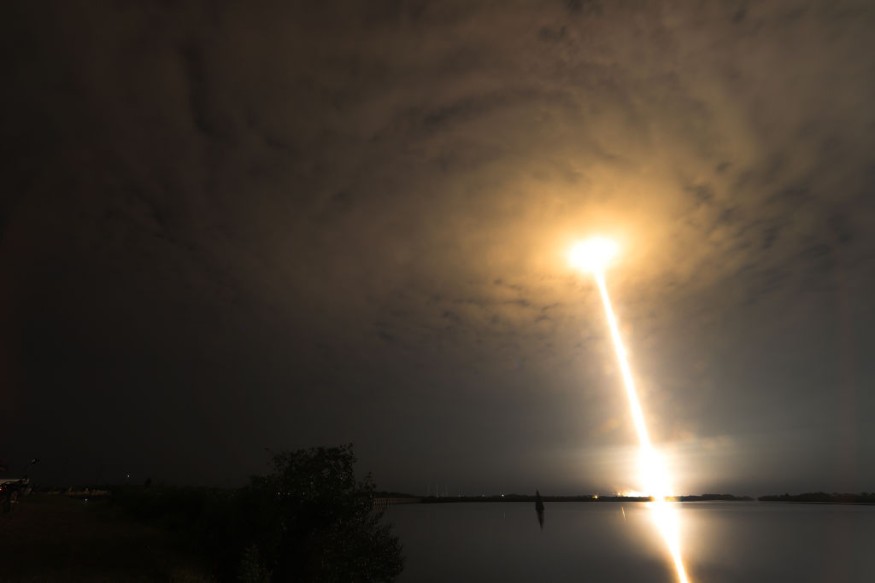SpaceX's Falcon 9 rocket carrying 54 Starlink internet satellites was due to launch on Tuesday at 10:10 p.m. ET, September 13, but it was canceled because of lightning at Cape Canaveral, Fox 35 reported.
There have been lightning strikes that lit up the evening sky at Florida's Space Coast, which led to the rocket launch being called off during the countdown and just in time before the start of loading propellants into the Falcon 9 rocket.

Falcon 9 Rocket Launch Rescheduled on Wednesday
The 229-foot-tall (70-meter) Falcon 9 rocket is now set for launch on Wednesday, September 14, at 9:48:40 p.m. EDT from pad 40 at Cape Canaveral Air Force in Florida after the canceled launch on Tuesday.
It will be the 42nd Falcon 9 launch of SpaceX in 2022 and the 40th space launch attempt overall from the Space Coast this year, including other Astra and United Launch Alliance (ULA) launches.
Due to unfavorable weather, now targeting Wednesday, September 14 at 9:48 p.m. ET for launch of 54 Starlink satellites from SLC-40
— SpaceX (@SpaceX) September 14, 2022
Spaceflight Now reports that the weather could still be not ideal for a rocket launch on Wednesday night as weather forecasters predict a 50-50 chance of acceptable conditions for liftoff. Just like Tuesday night, the company's main concern for the launch is the continued threat of lightning.
The Starlink 4-34 mission will carry 54 additional satellites into low-Earth orbit released by the upper stage of Falcon 9 over the North Atlantic Ocean about 15 minutes after the liftoff. In total, the satellites weigh about 36,800 pounds (16.7 metric tons).
Moreover, the mission is the third of many Falcon 9 missions on the schedule of SpaceX this month, wherein the company's vice president of commercial sales, Tom Ochinero, revealed at a conference in Paris on Tuesday that they aim to complete 60 launches this year, 100 rocket missions next year, and continuing the uptick of rocket launches of SpaceX in the coming years.
With the increased rocket launch missions, there are shorter turnarounds between them in both Florida and California. Sending Starlink satellite internet network into orbit, such as the mission on Wednesday, accounting for two-thirds of the Falcon 9 flights this year.
SpaceX's Broadband Constellation of Satellites
Starlink is the broadband constellation of satellites on SpaceX that provides internet connection to even the most remote areas. Space.com reported that there are 3,200 Starlink satellites currently in orbit so far and the company is rapidly expanding its constellation every week or more often than that.
SpaceX CEO Elon Musk has expressed his goals of achieving 100 SpaceX missions by 2023 to ramp up Starlink operations and send more than 30,000 satellites into low-Earth orbit. They are expanding the types of customers accessing Starlink services and trying to offer it to more countries.
Their services are now available in 32 countries, including most of the US, the southern part of Canada, Mexico, and most of Europe except Scandinavia, some parts of South America, and populated areas in Australia, and New Zealand.
They recently announced a collaboration between T-Mobile to beam broadband service directly to phones. SpaceX has also signed a deal with Royal Caribbean to offer such services on cruise ships for better internet service even at sea.
RELATED ARTICLE: SpaceX Starlink Gets Approval From Georgia to Provide Internet Services in Mountainous Regions in Eastern Europe
Check out more news and information on Starlink in Science Times.











